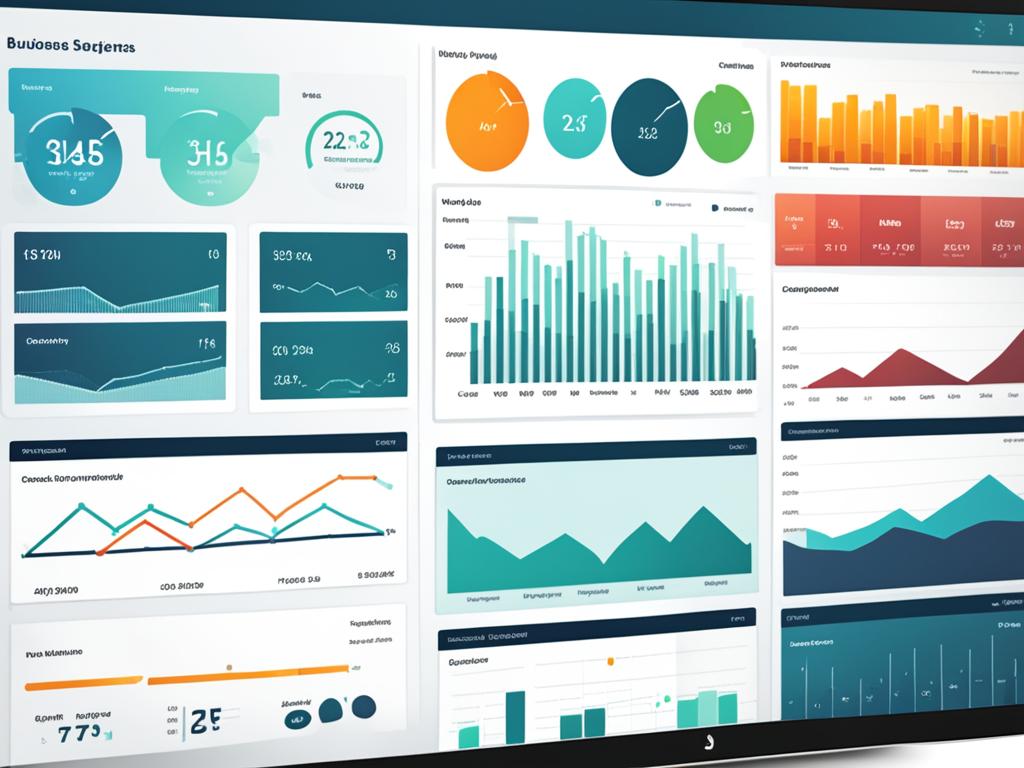In today’s data-driven world, making smart business choices is essential. Business Intelligence (BI) tools play a pivotal role in this. They convert raw data into actionable insights, enhancing your business performance.
BI software equips you to analyze data, identify trends, and make informed decisions. This empowers you to outperform competitors and drive your company’s success.
Are you ready to explore the transformative power of BI software? Let’s delve into how these tools can revolutionize your decision-making and elevate your business to new heights.
Understanding Business Intelligence Software
Business intelligence software turns raw data into actionable insights for your company. These tools aid in making informed decisions and staying ahead of competitors.
What is Business Intelligence Software?
BI software gathers, processes, and analyzes data from various sources within your organization. It simplifies complex information, enabling you to identify trends and make data-driven choices.
Key Features of BI Software
Modern BI solutions come with a variety of features to effectively utilize your data:
- Data visualization tools for creating charts and graphs
- Reporting tools to generate detailed reports
- Predictive analytics capabilities for forecasting trends
- Real-time insights to monitor business performance
Benefits for Your Business
Implementing BI software offers numerous advantages to your organization:
- Improved decision-making based on accurate data
- Increased efficiency through streamlined processes
- Better understanding of customer behavior and preferences
- Enhanced ability to identify new business opportunities
By leveraging business intelligence software, you can gain a competitive edge and drive your company’s growth in today’s data-driven marketplace.
Top Business Intelligence Software Solutions
The market is flooded with powerful Business Intelligence (BI) tools designed to aid in making data-driven decisions. Let’s delve into some top contenders that can revolutionize your business analytics.
Tableau is renowned for its user-friendly interface and breathtaking visualizations. It excels in data exploration, allowing for swift discovery of insights. The drag-and-drop functionality makes it accessible to users at all skill levels.
Power BI, from Microsoft, integrates flawlessly with other Microsoft tools. It boasts robust data modeling capabilities and is economically viable for small to medium enterprises. The cloud-based service ensures your team can access reports remotely.
Looker excels in creating a unified source of truth for your data. It’s perfect for organizations that value consistent metrics across departments. Looker’s modeling language facilitates intricate data analysis.
Sisense is tailored for businesses managing extensive, complex datasets. Its In-Chip technology enables rapid processing of vast data volumes. Sisense offers both cloud and on-premises deployment options.
QlikView employs a unique associative approach to data analysis. It enables users to uncover relationships between data points not evident in traditional BI tools. QlikView stands out in self-service BI.
- Tableau: Best for data visualization
- Power BI: Ideal for Microsoft-centric organizations
- Looker: Great for establishing data consistency
- Sisense: Perfect for handling big data
- QlikView: Excellent for exploratory data analysis
Each BI tool brings unique strengths to the table. Your selection hinges on your business’s specific needs, data complexity, and budget. Take the time to assess these options to discover the ideal match for your organization.
Factors to Consider When Choosing BI Software
Choosing the right business intelligence software is a complex task. You must weigh several factors to find the best match for your company. Let’s delve into key considerations to help guide your decision-making process.
Scalability and Integration
Your chosen BI solution must adapt to your business’s growth. It should handle expanding data volumes and user numbers seamlessly. Ensure it integrates well with your current systems and data sources. This adaptability will reduce the time and resources needed in the future.
User-Friendliness and Learning Curve
The ideal BI tools offer both power and simplicity. Assess the interface’s intuitiveness and how swiftly your team can master it. Customization capabilities are crucial for tailoring the software to your unique needs.
Cost and ROI
Examine the costs of cloud-based and on-premise BI solutions. Cloud options typically have lower initial costs, whereas on-premise may provide greater control. Assess the potential return on investment by comparing the benefits with the total cost of ownership.
Customer Support and Training
Effective support is crucial for successful BI implementation. Evaluate the vendor’s training resources, documentation, and customer service. A robust support system ensures you can fully leverage your BI investment.
By thoughtfully considering these factors, you’ll be well-prepared to select a BI solution that propels your business forward. Remember, the right software enables you to transform data into actionable insights.
Implementing Business Intelligence Software in Your Organization
Are you prepared to integrate BI software into your company? Begin by developing a comprehensive BI strategy that harmonizes with your business objectives. This strategy will act as a blueprint for your implementation and serve as a metric for measuring success.
Data governance is essential for optimizing your BI tools. Establish definitive protocols for data quality, security, and access. Such measures will guarantee that your team operates with trustworthy data and adheres to regulatory standards.
Change management is paramount when introducing new technology. Educate your staff, address their apprehensions, and highlight the advantages of BI software. Early employee engagement will enhance adoption rates and foster a culture where decisions are informed by data-driven insights.
Implementing BI is a continuous endeavor. Periodically evaluate whether your software aligns with your evolving needs and be prepared to make adjustments. With diligence and perseverance, you will elevate your organization into a data-driven entity.
